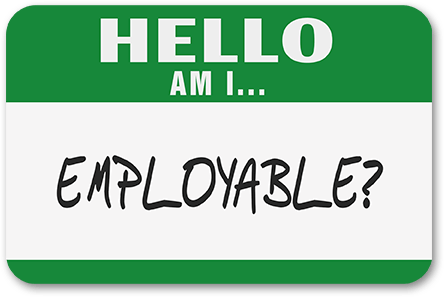Around the team table this week we’ve been mulling on a range of ‘employable skills’ conversations that we’ve had over recent months, including…
- One job seeker who has decided to make a significant career shift, chase her ‘dream job’ if you like – she wanted to know the key skills she should work on in order to best position herself to chase the dream
- Conversations over the past year with candidates who have been displaced due to Covid-19; and
- Even more conversations with employers wondering if they could capitalise on those displaced workers; are the transferable skills enough for them to do the job…for example, a manager of a large hotel, who’s very good at people management, leadership, managing shifts, and thinking on his feet – but has no farm skills – could they make the transition into managing a farming business?
- On the same vein, I’ve been talking to a school teacher recently about whether or not great teachers are actually the right people to run schools
Add on to these converstaions with: what are the lessons we’ve learnt from Covid-19, and does that change the skills that are most valued in the workforce…??
There is a whole pile of research and rhetoric around what the most employable skills are most valued by employers in 2021. Turns out, there is no single ‘master list’ for the most valuable skills, and depending on where you look, you’ll find a range of skills that vary slightly. But across all of these lists, there are a few consistent truths that can’t be ignored. There is no doubt that the skills needed are changing, with much more emphasis on soft skills, and less emphasis on specific technical skills and IQ. And there are some very consistent themes, regardless of which list(s) you find. In our changing world, the skills most valued by employers are:
Adaptability/Agility – the way businesses operate continue to change, and employees need to be agile enough to be able to adapt with those changes.
Emotional intelligence – Having the ability to understand, manage and express your emotions is a key skill. In turbulent times, it’s crucial that companies have employees who can respond appropriately to the emotions of others – whether it’s their manager, team mates or customers.
Critical thinking/complex problem solving - this is important because it ensures you have the best answer to a problem, with maximum buy-in from all parties involved – an outcome which will ultimately save your business time, money and stress.
Learnability/growth mindset – employers are more inclined to hire someone who wants to learn and is flexible rather than someone who has all of the technical skills but lacks curiosity or flexibility. Things are constantly changing, and the way we work needs to reflect those changes
Resilience – Covid-19 has brought resilience to the forefront for many employers, who are looking for peple who can adapt to challenging situations and handle set backs
Creativity – for businesses to be able to change, they need people who can create the change.
Leadership – change inevitably requires people who can inspire teams to create the change.
So what does this mean for anyone in an employment relationship, regardless of which side of the relationship you’re on? For many employers, who have traditionally focused on skill set, and typically look for someone who can ‘hit the ground running’, this will take a shift, both in mindset and in recruitment practices. Each employer has to make a decision about short term relief versus long term engagement, retention and productivity. And for job seekers, who have traditionally relied on technical skillset and in some cases IQ to build their career, there needs to be a focus on understanding, building and demonstrating these skills.
